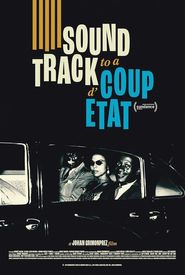Johan Grimonprez, a multifaceted Belgian creative force, emerged onto the artistic scene in 1962, in the quaint Flemish town of Roeselare, Belgium. This visionary multimedia artist, filmmaker, and curator has established a reputation for crafting films that boldly challenge and critique the pervasive influence of contemporary media on our society, skillfully dissecting the mechanisms of media manipulation and the ensuing media saturation that has become a hallmark of modern life.
Noted artist Grimonprez's academic trajectory is a testament to his eclectic interests and pursuit of interdisciplinary knowledge. He embarked on a multifaceted educational journey, initially delving into the realms of cultural anthropology, photography, and mixed media at the esteemed Royal Academy of Fine Arts in Ghent. Subsequently, Grimonprez further honed his skills by completing his Master of Fine Arts degree in Video & Mixed Media at the renowned School of Visual Arts in New York. Additionally, his exceptional talent and dedication earned him a coveted spot in the prestigious Whitney Museum Independent Study Program in 1993, allowing him to refine his craft under the guidance of industry experts. Furthermore, Grimonprez's academic pursuits took him to the Jan van Eyck Academy in Maastricht, Netherlands, where he had the opportunity to explore new artistic frontiers and collaborate with fellow artists.
Noted French artist and filmmaker, Grimonprez, has garnered widespread attention for his thought-provoking cinematic endeavors, including the critically acclaimed productions, Dial H-I-S-T-O-R-Y, Double Take, and Shadow World: Inside the Global Arms Trade.
Throughout his oeuvre, Grimonprez's films consistently critique the pervasive influence of media manipulation, boldly challenging the notion of objective truth and the ways in which our understanding of reality is often distorted by the stories we are fed.
The artistic vision of Grimonprez is profoundly shaped by the intellectual and literary giants of Walter Benjamin, Jorge Luis Borges, and Don DeLillo, whose innovative ideas and perspectives have had a profound impact on his creative endeavors.
Grimonprez's extensive body of work includes the groundbreaking documentary, Soundtrack to a Coup d'Etat, which delves into the complex and multifaceted themes of decolonisation, the non-aligned movement, and the elusive dream of self-determination.
Through his work, Grimonprez masterfully weaves together disparate threads of history, politics, and culture, creating a rich tapestry of thought-provoking ideas and poignant reflections that invite the viewer to engage with the world around them in a more nuanced and empathetic manner.
As he navigates the intricate landscape of human experience, Grimonprez's artistic vision is informed by his deep understanding of the interplay between power, identity, and the human condition, which he skillfully conveys through his innovative use of visual storytelling and cinematic technique.
As a result, Grimonprez's work has garnered widespread recognition and acclaim, cementing his position as a leading figure in the world of contemporary documentary filmmaking and cementing his reputation as a visionary artist who is unafraid to challenge the status quo and push the boundaries of what is possible in the realm of storytelling.
The extensive and far-reaching impact of his creative endeavors has been widely acknowledged and showcased, with his cinematic productions having been featured prominently in a esteemed publication, specifically The Guardian's article "From Warhol to Steve McQueen: a history of video art in 30 works", a testament to his significant contributions to the world of video art.






























